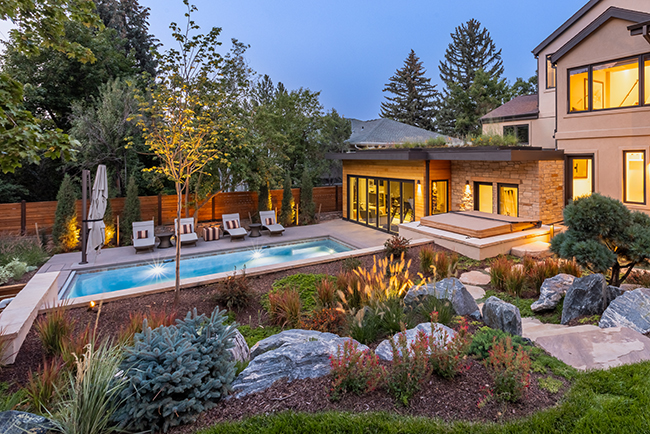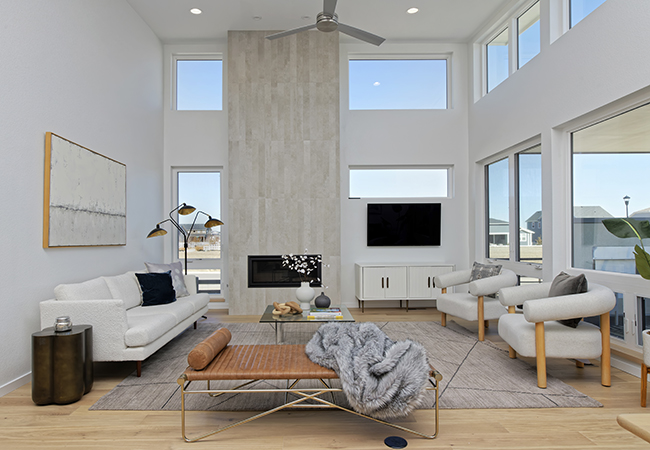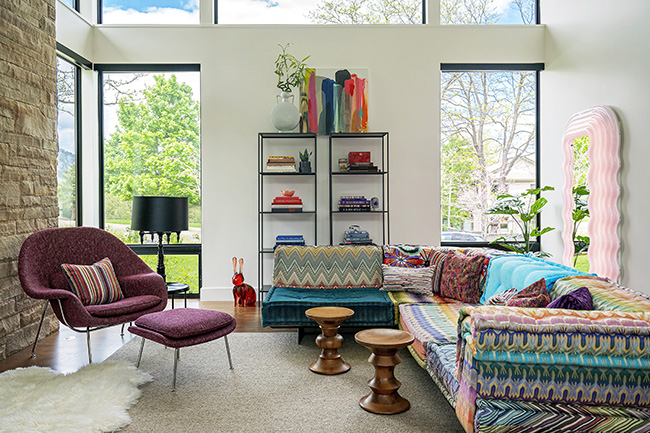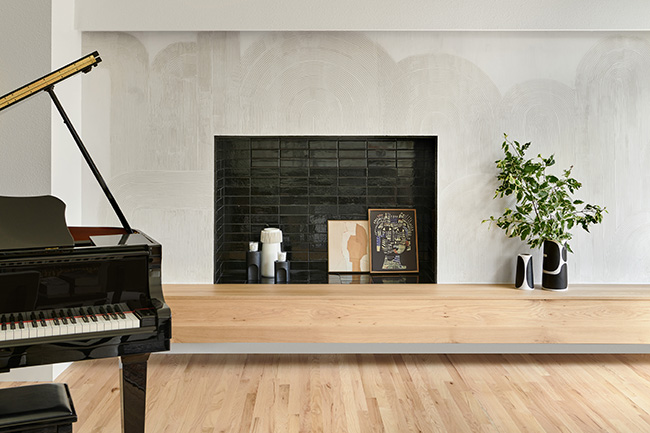Building a Sustainable Legacy
04 Oct 2023
Cottonwood Custom Builders leads on green building
By Holly Bowers

I catch Jeff Hindman while he’s working on a new family cabin near Clark, Colorado. It’s a family legacy-in-the-making born out of the perfect marriage of opportunity and skill. The same can be said for Cottonwood Custom Builders, which Hindman has grown into one of Boulder’s leading green building firms.
In the last 28 years, Cottonwood has garnered a reputation for the craftsmanship and attention to detail in every home they build. Hindman’s team is currently renovating a house that he constructed in 1998—the architects couldn’t imagine using anyone else.
A unique approach
Close collaboration with architects and homeowners is a Cottonwood hallmark. The builders work closely with homeowners and architects to create a design and manage the homeowners’ budget. And the builders don’t forget a home as soon as the build is done, either. Hindman explains that his team will stay with a project for months to ensure that every detail is right, and they often return years later to make fixes at no cost.
Cottonwood’s approach stands out in a business where many general contractors build and move on. But Hindman believes that building relationships is just as important as building homes. His team will spend 10 months to two years on a build, going above and beyond in every way. “Not only are we building to the level that [Boulder] requires, but oftentimes Cottonwood’s requirements are exceeding those building codes,” says Karen Ramsey, the estimator and project manager at Cottonwood.
In the last few months of the build, the focus shifts to ensuring the homeowners are satisfied with every detail. “We don’t walk away until everything’s as good as it can be,” explains Hindman.

Forged in politics
Cottonwood’s dedication to customer service has its roots in Hindman’s early political career. After college, Hindman answered a newspaper advertisement to canvas for the Bottle Bill, which enacted the five-cent deposit on cans and bottles to promote recycling. That led him to campaign management in California, then to Washington, D.C., where he advocated for competition in the phone industry.
Office work didn’t suit Hindman, however, so he took a job on a framing crew. He loved the work and went back to school for construction management. By the time he moved home to Colorado, he felt prepared to run his own construction business. Cottonwood Custom Builders was born in 1995.
Two of the firm’s founding principles came directly from Hindman’s political work on consumer protection and environmentalism. The entire Cottonwood team is dedicated to transparency, honesty and accuracy to ensure that clients receive a good value for every dollar they spend. “We will never say, ‘Oh, it’s good enough.’ If it’s not right, then we fix it,” Hindman says.
The firm’s focus on sustainable building found a ready home in climate-aware Boulder. Sustainability is embedded into all aspects of Cottonwood’s work, from constructing homes and sourcing materials to disposing of waste. The team recycles 75–80% of all the waste on a build and 60–80% of the homes they deconstruct.
Leaps and bounds in building science
Remodeling the 1998 build has given Hindman a chance to reflect on the progress in green building science in the last quarter-century. Today, builders try to source materials locally because shipping from overseas is not sustainable. Green construction also focuses on installing efficient mechanical systems and all-electric appliances.
But the key is creating a high-quality building envelope with good insulation and sealing. “The building envelope is the most important part of getting the house right and making it sustainable,” Hindman explains. “That’s also what you can’t change—you can always update your finishes, but [it’s harder to] rebuild your walls and reinsulate and replace your windows. So, getting the building envelope right is by far one of our highest priorities, but also one of our areas of expertise.”
A good building envelope allows for more efficient temperature control, reducing the total amount of energy homeowners must use to stay comfortable. Cottonwood uses state-of-the-art materials and even incorporates passive house techniques into their standard construction to ensure that quality envelope. As a result, their builds are twice as airtight as typical custom homes.
Cottonwood considers fire resistance another important aspect of sustainable building. The team learned a lot about fire-resistant building in the wake of the Fourmile Canyon Fire in 2010. “At the time, it was so massive and major and shocking,” Hindman says. “Thirteen years later, you see the massive increase in the scope and scale of the fire events since.”
An expertly crafted building envelope matters in fire-resistant building, too. An envelope of non-combustible materials, combined with heat- and fire-resistant windows, will keep embers from getting inside. Equally important is ensuring that landscaping minimizes hazardous and flammable vegetation near the house.

Building a sustainable culture
While Cottonwood’s attention to detail and expertise are impressive, they’re not the only thing that set the firm apart. They’re also fun to work with. “I have worked in construction for 20 years, and the culture here is like no other. It’s just like a family,” Ramsey notes. From training opportunities to Solstice parties after work, the Cottonwood team enjoys a camaraderie that spills over into their relationships with clients. “We all really enjoy our jobs and our clients,” Ramsey says. And it’s that strong sense of culture, as much as anything else, that is the hallmark of a sustainable and successful enterprise.












